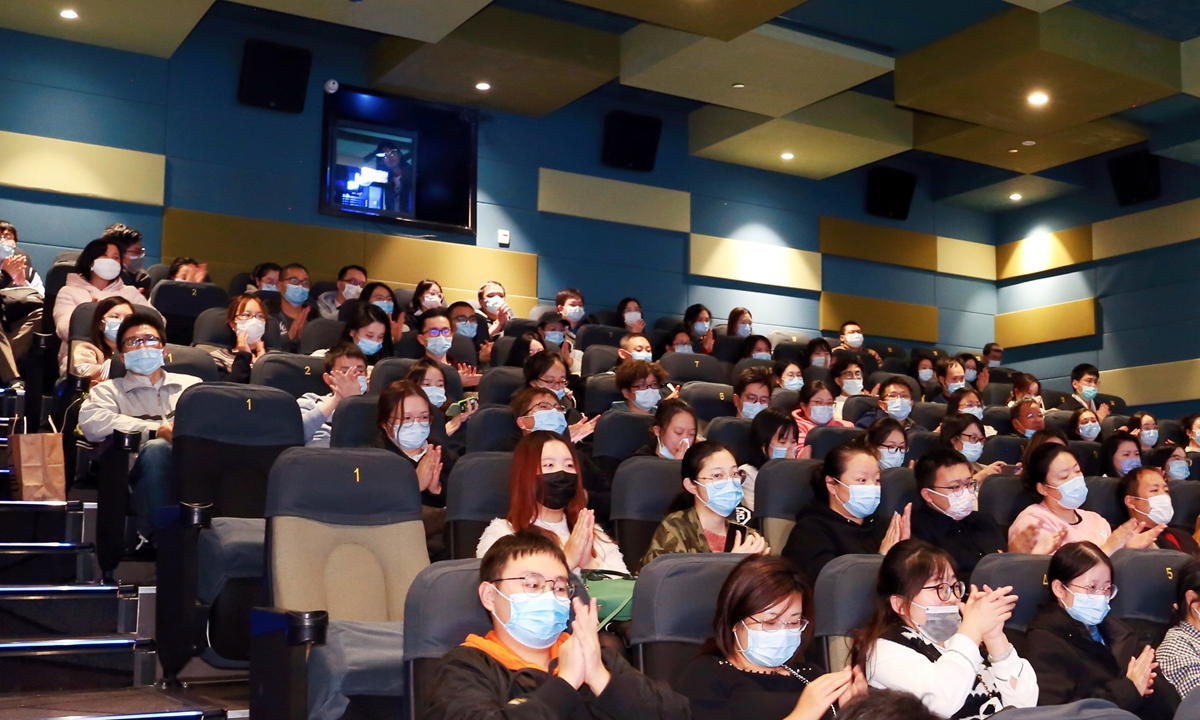
The audiences watch a film at a cinema in Shanghai on November 12, 2021.Photos: VCG
The China Film Administration on Friday required cinemas across the country to conduct scientific and targeted measures to combat the COVID-19 resurgence based on local conditions, with cinemas in high- and medium-risk areas having to close temporarily.
Related preventative measures will be carried out to prepare for the resumption of services, such as disinfection and health monitoring for cinema employees, according to a notice the film administration released on Friday.
Cinemas in low-risk regions should follow the local authorities' requirements, the notice said. In these areas, cinemas should cap audience attendance at 75 percent of capacity and check people's temperature. Cinemas should also use real-name booking and contactless digital ticketing, while ensuring the wearing of face masks during the whole process of watching a movie.
Also, viewers are not allowed to eat and drink while watching a movie, and environment disinfection and extended intermission time will be conducted, according to the film administration.
Chinese netizens expressed their views, with some supporting the authorities' decision while others said they were concerned about the sluggish film market. "It's been an unlucky year for the movie market this year, and we hope the epidemic will finish soon," one netizen wrote on Sina Weibo.
"I haven't been to a cinema for a long time due to the epidemic," another netizen wrote.
China retained its top spot in global box office earnings in 2021, with box office revenue of 47.26 billion yuan ($7.4 billion), of which 84.49 percent was for domestic productions, according to official data.
However, the market is facing a low ebb in March, with film observers blaming the COVID-19 resurgence nationally and a lack of high-quality films.


